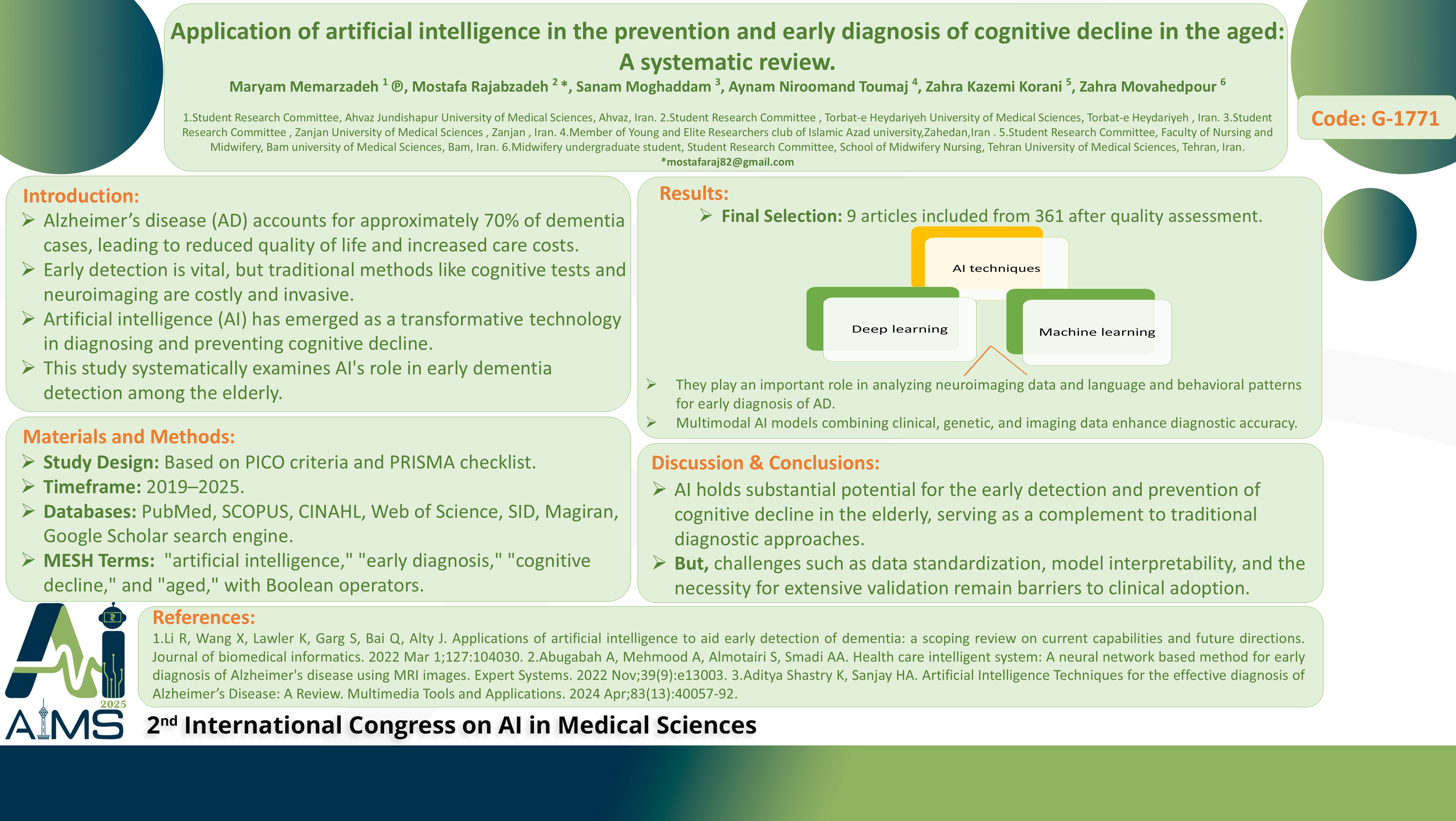Application of artificial intelligence in the prevention and early diagnosis of cognitive decline in the aged: A Systematic Review
Code: G-1771
Authors: Maryam Memarzadeh ℗, Mostafa Rajabzadeh *, Sanam Moghaddam , Aynam Niroomand Toumaj, Zahra Kazemi Korani , Zahra Movahedpour
Schedule: Not Scheduled!
Tag: Clinical Decision Support System
Download: Download Poster
Abstract:
Abstract
Introduction: Alzheimer’s disease (AD), which accounts for approximately 70% of dementia cases, reduces quality of life and increases the cost of care. Early detection and intervention are crucial to slow the progression of the disease, but traditional methods such as cognitive tests and neuroimaging have limitations such as high costs and invasiveness. As a result, the need for accurate and affordable diagnostic tools has increased. Meanwhile, artificial intelligence (AI) has been proposed as a transformative technology in the diagnosis and prevention of cognitive decline. This systematically investigate the role of AI in the prevention and early diagnosis of dementia in the elderly, analyzing recent advances. Methods: This study was conducted in accordance with the PICO criteria, in line with the research objective, and guided by the PRISMA checklist. A comprehensive search of articles from 2019 to 2025 was conducted in the databases PubMed, SCOPUS, CINAHL, Web of Science, SID, and Magiran, as well as the Google Scholar search engine. The search was conducted using the MESH keywords "artificial intelligence" "early diagnosis" "cognitive decline" "aged" and using Boolean operators. Subsequently, two researchers independently reviewed and screened the retrieved articles based on the inclusion criteria. Results: review of the inclusion and exclusion criteria and assessment of the quality of the articles, 8 articles out of a total of 315 articles were included in the initial search. The findings indicate that artificial intelligence-based techniques, especially deep learning and machine learning , play an important role in the analysis of neuroimaging data and language and behavioral patterns for the early diagnosis of AD. In addition, the use of multimodal AI models that analyze a combination of clinical, genetic, and imaging data has helped improve diagnostic accuracy. Conclusion: Artificial intelligence has great potential for early detection and prevention of cognitive decline in the elderly and can help complement traditional approaches. However, challenges such as data standardization, model interpretability, and the need for extensive validation are barriers to clinical adoption.
Keywords
Artificial Intelligence, Early Diagnosis, Cognitive Decline
